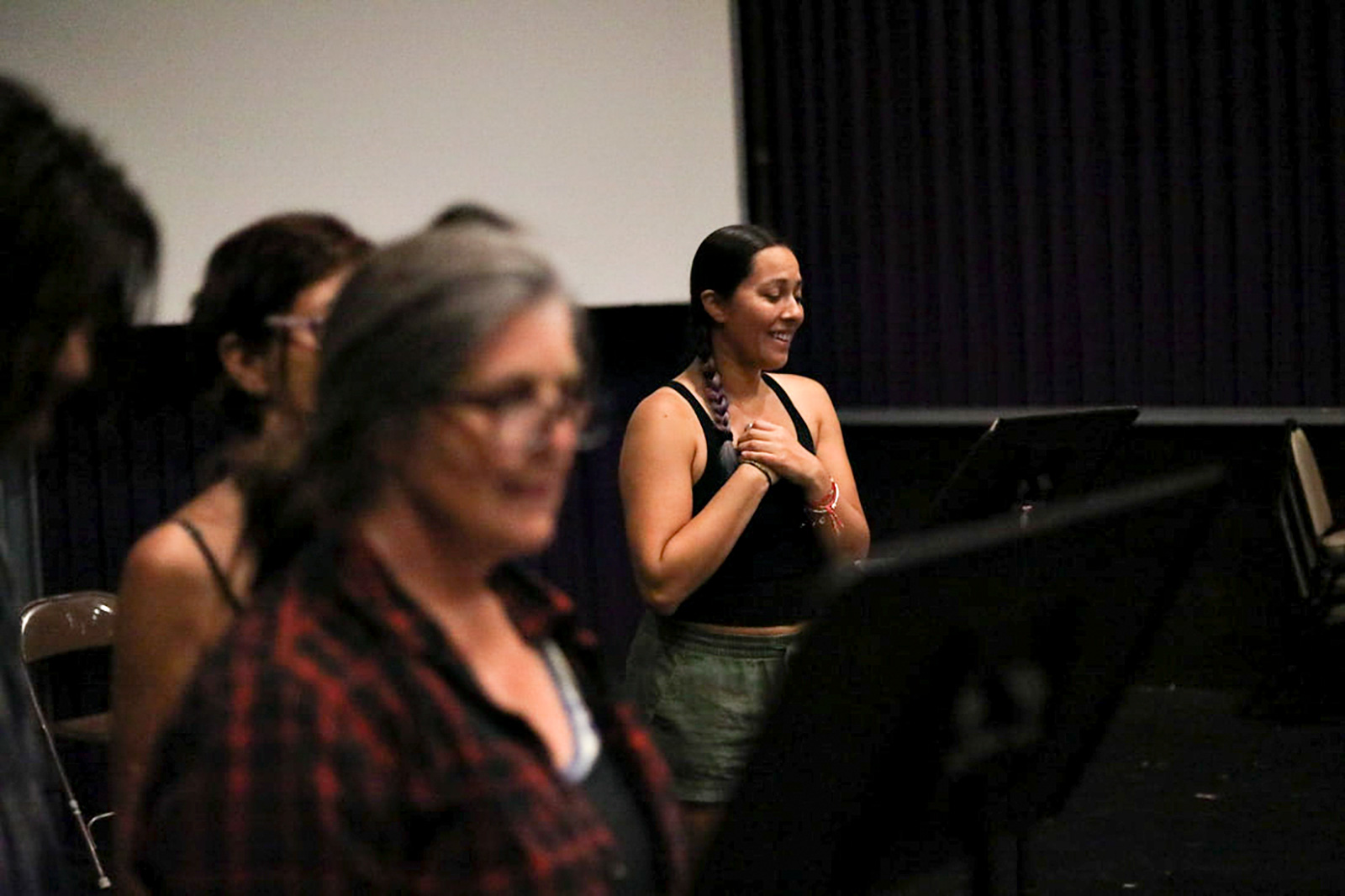New Play Parodies Whitefish Housing Hypocrisy
A performance of “A Different Kind of Woman” is scheduled for Monday, Sept. 26 at 8 p.m. at Glacier Lanes bowling alley in Columbia Falls
By Mike Kordenbrock
A Columbia Falls bowling alley will host an upcoming performance of a new comedic play whose creators want to highlight the hypocrisy they see between how the community of Whitefish talks about housing, and how it acts.
Called “A Different Kind of Woman,” the play is a collaborative effort led by Whitefish resident Leanette Galaz and former Whitefish resident Nick Rapp, who is directing the play. Work on the play began last winter and stretched through the summer.

A pair of staged readings took place at the O’Shaughnessy Center in Whitefish in August, but Rapp and Galaz realized afterward that some of the very people the play was trying to connect with — Whitefish’s working class, including its service workers — couldn’t really make it out to a play on a Friday or Saturday night because of their work schedules.
The upcoming performance on Sept. 26 at Glacier Lanes in Columbia Falls is on a Monday night, with the hope that people unable to attend the Whitefish performances can fit this one into their schedule. Galaz said when they discussed this follow-up performance, Glacier Lanes quickly came to mind because she knew that owners Kristen and Derek Larson want the bowling alley to provide a place for community, and that it might also be a more appealing setting for people who might not necessarily be comfortable or familiar with going to an actual theater.
“A Different Kind of Woman” uses the Irish playwright J.M. Synge’s “The Playboy of the Western World” as a kind of storytelling skeleton within which Galaz, Rapp, a writing collaborator of Rapp’s named Jessica Felix, and a host of other people worked to fill with details that would feel real to a Montana audience. Synge’s play, which was first performed in the early 20th century, is about a young man in Ireland who becomes a celebrated figure when he arrives in town to announce that he has killed his father. Eventually, though, it becomes clear that his father wasn’t actually killed. The man promises to follow through on the act, but townspeople who witness the supposed actual murder become uneasy when, as Rapp put it, “they can now see the difference between a gallant story and a dirty deed.”
“The town, they like the idea of something, they don’t like the actual reality of it,” he said.
As Galaz explained, “A Different Kind of Woman” pokes fun at “performative liberalism.”
“People claim to want to have diversity and inclusivity, but the reality of it, which we experienced working on this play, is quite difficult,” she said.
Synge’s play was controversial in its time, and Irish nationalists even stormed the stage and rioted at one performance in 1907, according to a 2011 Guardian article exploring the play’s turbulent history.
For “A Different Kind of Woman,” the play was written using some autobiographical details from Galaz’s life. Performers were also given opportunities to discuss and offer feedback on the text. Through its satirical look at Whitefish’s housing situation, the play also addresses institutional racism and white supremacy.
“We’d sit down with the whole cast of eight people, a lot of old generation Montanans, young people, older people from a lot of different walks of life. We’d sit down together and we’d go through it and give Nick our feedback. Which was sometimes glowing and sometimes very highly critical, and it looped together a lot of context in our lives and our experiences as people in Whitefish, or Eureka, because some people have been pushed out of Whitefish who are in that cast,” Galaz said. “We also did a lot of research on Whitefish, the current context, the past, the present, and thought a little bit about the future.”
Participants also wrote some sketches based on the research, which helped further inform the play. Rapp said the term for the collaborative process they used is “devised theater.”
In promotional materials for the play, the synopsis describes the play as concerning Christina Guzman. Guzman, “wanting to leave behind the domesticity of her conventional California married life escapes her marriage and flees to Whitefish where she finds the resources necessary for her self-realization.”
“Here she falls in love and finds herself inspired to rise to the demands of the community and deliver on affordable housing for the working class,” according to the synopsis. “When aspects of her affordable housing initiative intersect with the personal interests of the financial elite in town, we learn there’s a lot more to living in Whitefish than what’s on the travel brochures.”
A bowling alley isn’t necessarily a conventional setting for theater, and Galaz said they’ve gotten questions from people curious about how it will work. As she explained, the alley is closed on Mondays, and the building features a stage and performance space with enough room to fit somewhere around 80 audience members.
The performance will be a dramatized reading beginning at 8 p.m. The play is a little under two hours in length. Tickets can be purchased in advance at www.montanaarttheatre.org. Tickets are $10, or people can pay what they can at the door.
